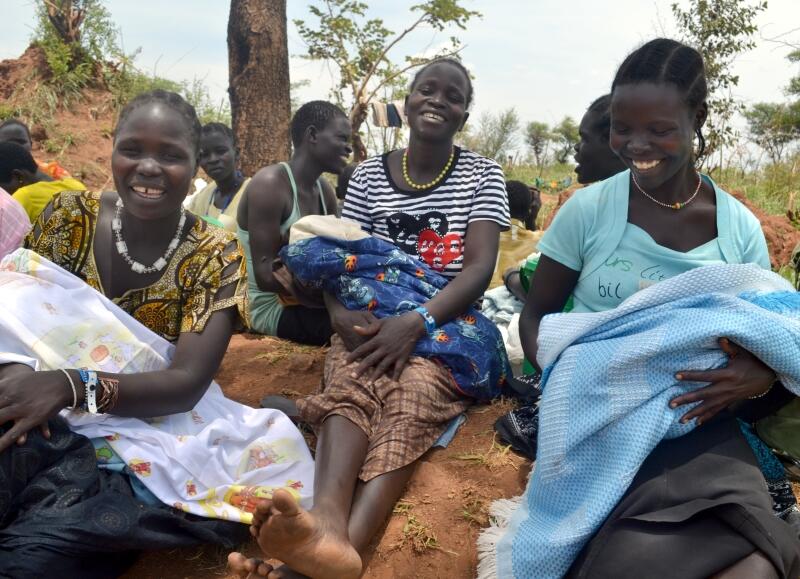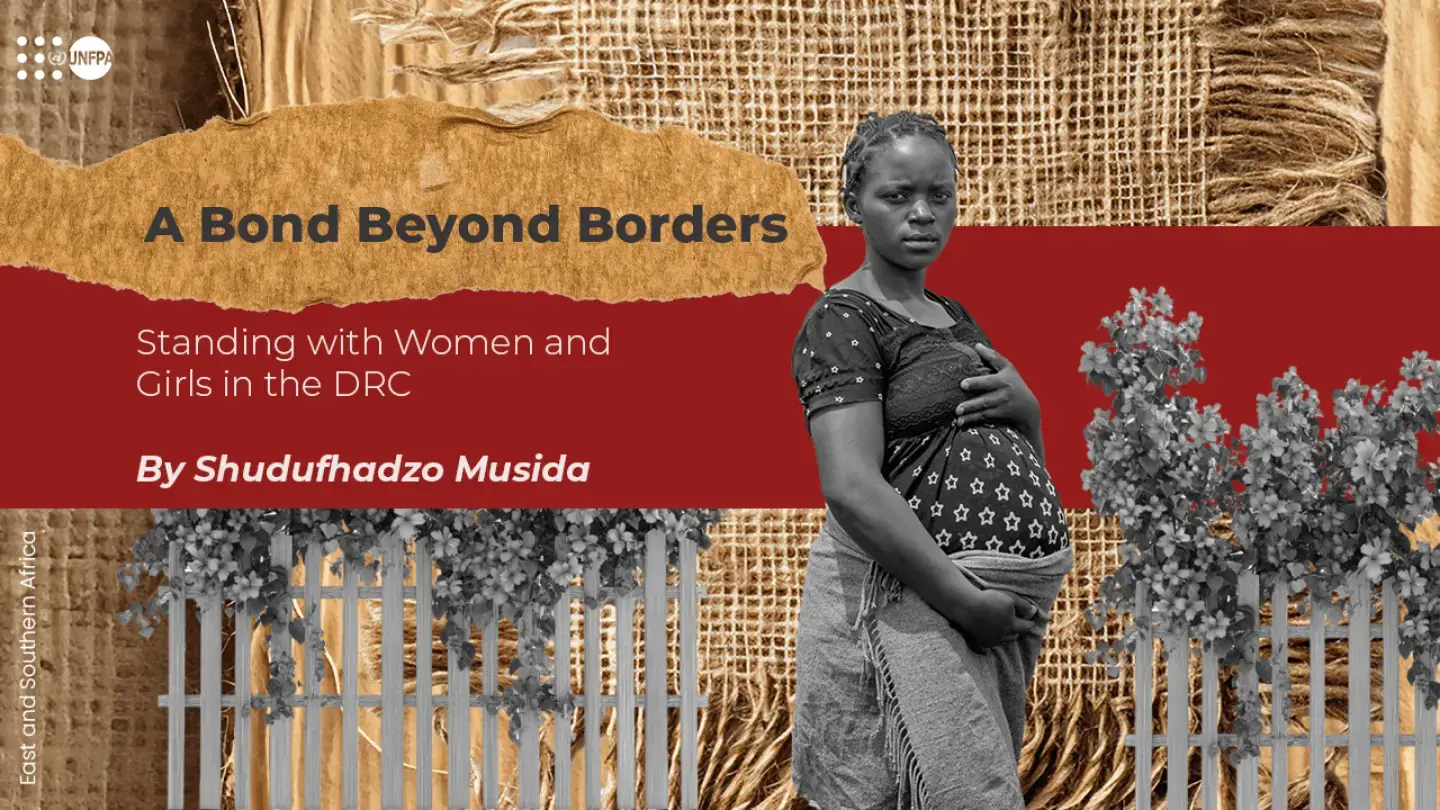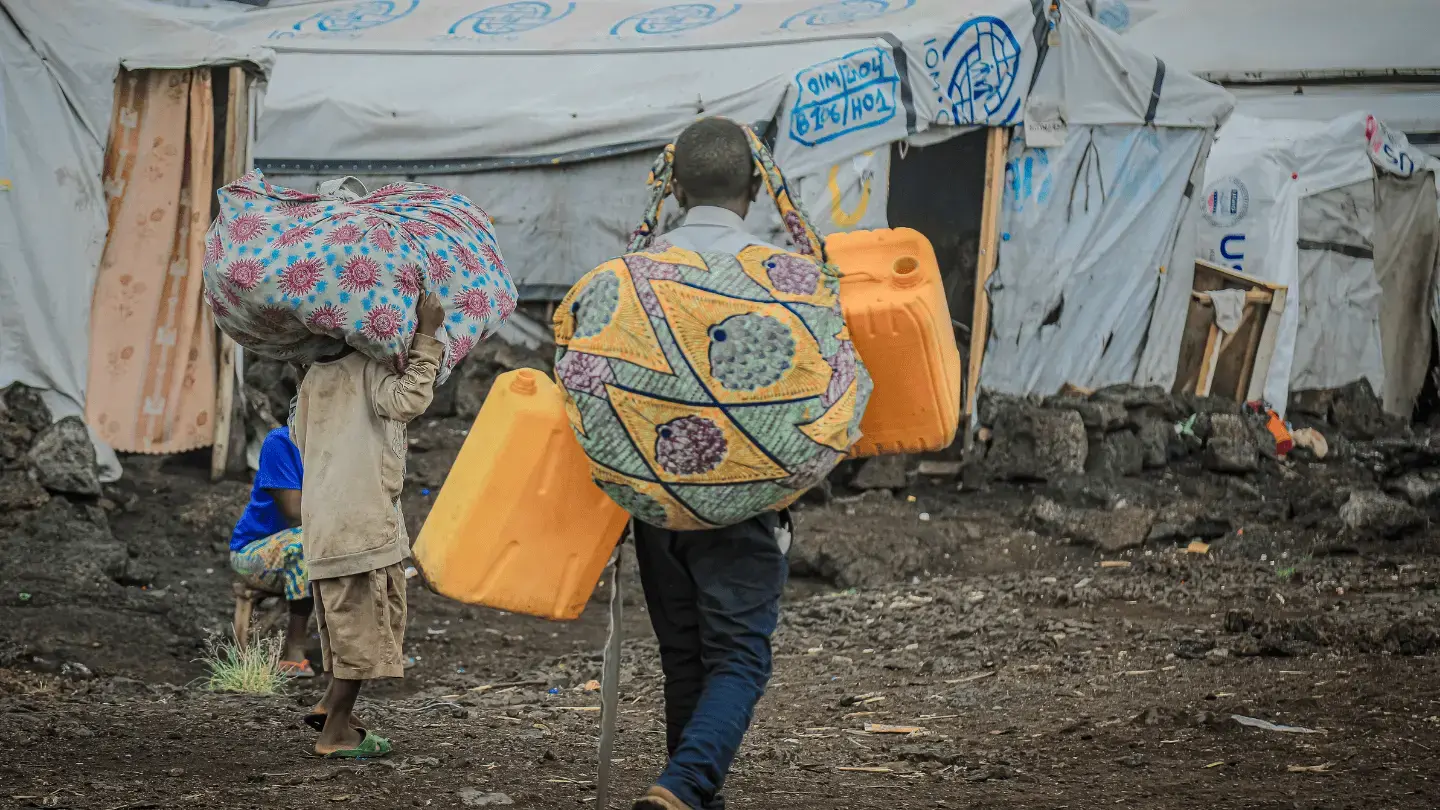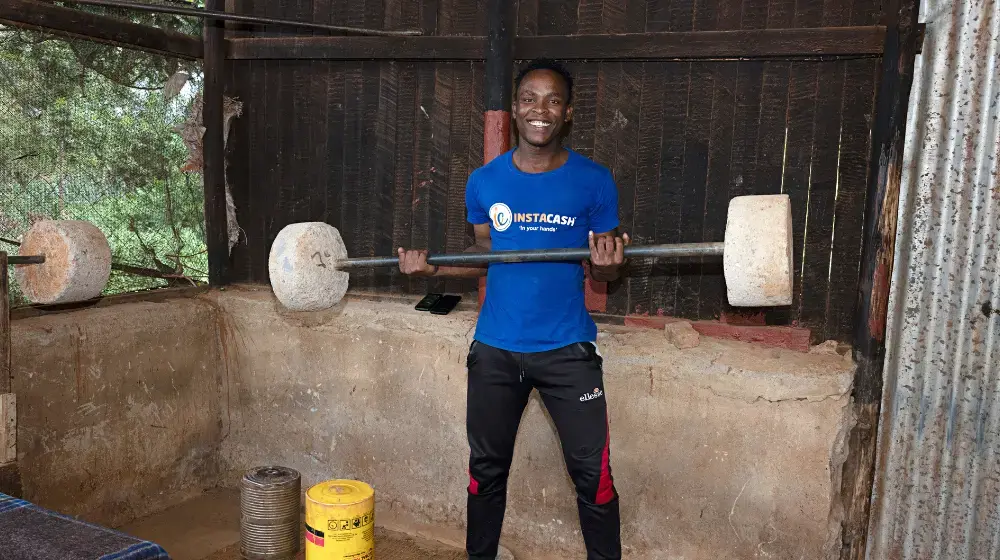LAMWO, Northern Uganda – At a refugee reception centre in northern Uganda, nine mothers standing in single file cuddled their newborn babies, all of them wrapped up warmly in wool blankets.
Visibly exhausted and filled with anxiety, each had a story to tell – how, pregnant and near their expected dates of delivery, they had fled the armed conflict raging in Pajok town in South Sudan.
We walked with difficulty but we could not stay behind because we feared we would be killed by guns. - Rose Akongo, 26, pregnant
Two of the nine mothers had already delivered, one in a tent at the refugee centre and the other, under skilled care at nearby Ngoromoro Health Centre II, with the support of the International Rescue Committee (IRC), a UNFPA partner.
Their journeys had been long and treacherous.
“We walked with difficulty but we could not stay behind because we feared we would be killed by guns,” said Rose Akongo, 26, who arrived worn out at Uganda’s Ngoromoro border post.
Not quite sure when her labour pains were due to start, she had trekked for two days through the bush with her three-year-old daughter, Brenda Aromorach, tied on her back.
Because of her condition, on arrival UNFPA’s partners on the ground immediately prioritized her health and took her to Ngoromoro Health Centre II for delivery under skilled care. Here, she gave birth safely.
My labour [pains] started as we were running away, so I delivered my baby boy along the way in the bush.
Five other refugees also delivered at Ngoromoro Health Centre II. However, this was not to be the case for Rose Anyiri, 35, whose plan to deliver at a health centre in Pajok was disrupted by the sudden onset of the conflict.
“My labour [pains] started as we were running away, so I delivered my baby boy along the way in the bush [at a mountainside], with the help of my aunt,” she said.
Vicky Auma, 26, was luckier. After spending three days and three nights trekking through the bush, she delivered her baby boy at the reception centre on arrival, with the help of her mother.
These are a few personal accounts of the immediate health threats and consequences that women suffer in conflict situations. They show how women and girls’ access to maternal and sexual reproductive health services is disrupted in emergency situations, a time in which one in five women of childbearing age are likely to be pregnant.
At the refugee reception centre, all mothers and babies were examined thoroughly to ensure that there were no postnatal complications from exhaustion and possible infections. Those who required more specialized medical attention were referred to Padibe Health Centre IV.
How UNFPA intervenes
Working in partnership, UNFPA ensures that women and girls’ sexual and reproductive and maternal health needs are not overlooked in times of emergencies.
As a key strategy to ensure safe births, even in humanitarian settings, UNFPA undertakes the following:
- Procures and facilitates distribution of emergency Reproductive Health kits to all health facilities serving refugees and host communities;
- Supports the recruitment of midwives to support Reproductive Health services in refugee response health facilities;
- Procures and supports the distribution of dignity kits, which are supplied to new mothers and have helped improve facility-based clean deliveries;
- Supports community pregnancy mapping and referral for care to ensure safe birth through increased attendance at ANC and skilled care;
- Supports the provision of integrated sexual and reproductive health, HIV prevention and family planning outreaches in settlements to ensure increased access services for the affected population;
- Provides medical tents to support maternal health services, such as antenatal and postnatal care;
- Trains health workers and other service providers on Emergency Obstetrical and Neonatal Care, Youth-Friendly Services and Minimum Initial Service Package for Reproductive Health;
- Provides a referral/ambulance system to ensure access to Emergency Obstetrical and Neonatal Care.
Ensuring the health and safety of women is not only a moral obligation – it is a strategic investment in vulnerability reduction that improves the rights of individuals and strengthens their resilience.
By Evelyn Matsamura Kiapi





